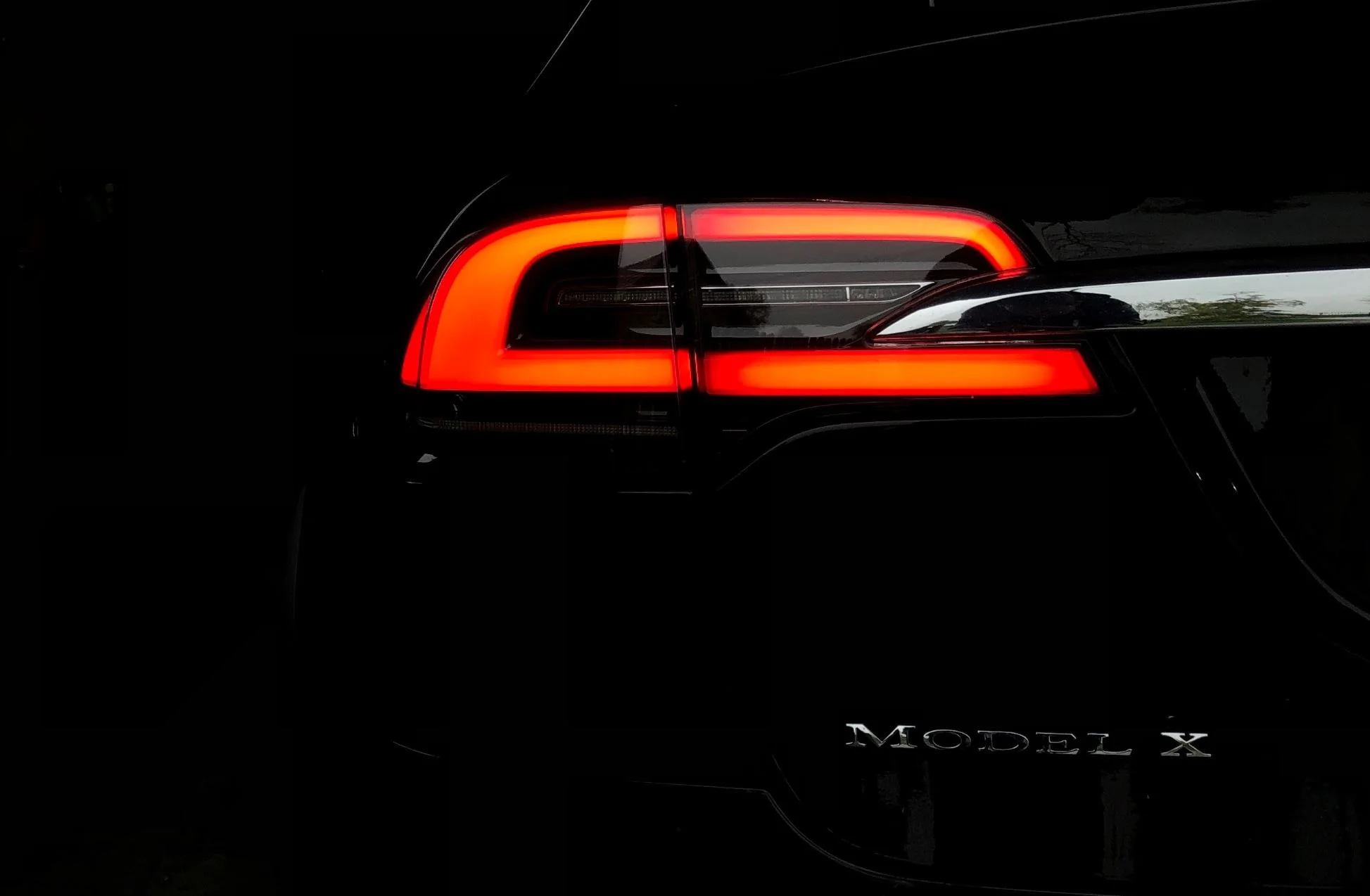Electric cars seem to be on the rise in Europe while diesel (and even petrol powered cars in some markets) seems to be on the decline. What is your opinion on the matter? Let us know in the comments
By Universal-Sci
Tesla model X tail light - Image Credit: Syzmon Kita via Unsplash
The number of purely electric cars (not counting hybrids or plug-in hybrids) in Europe increased by nearly 85 percent in the first quarter of 2019 compared to a year earlier. This is reported by the European Automobile Manufacturers Association ACEA. The share of petrol cars increased slightly as well, with exception of Germany while diesel fueled cars are in decline all across Europe. Cars that use diesel fuel were sold almost 18 percent less than in Q1 2018.
In total, almost three in five new cars in the first quarter of 2019 were still gasoline cars. Diesel was good for a third of all the new cars. While new cars running on alternative fuels accounted for 8.5 percent of the market. This includes electric cars (2.5 percent of new cars), hybrid cars with or without a plug (4.6 percent) and LPG (liquefied petroleum gas) cars) (1.4 percent). Looking at those numbers there is still a long way to go for a truly sustainable European car park.
The number of electric cars registered in the Netherlands, an important market that is seen as ‘ahead of the curve’ in a similar fashion to Norway, doubled in the first quarter. The number of Dutch plug-in hybrids also grew by 154.5 percent, which is notable as sales of that type of car remained virtually the same throughout the rest of the European Union. This discrepancy is probably due to the extremely high vehicle taxes (called BPM) on cars in the Netherlands. Those taxes are based on the amount of CO₂ emissions they generate. The average CO₂ emissions of a hybrid is slightly lower than with normal gasoline cars. Like in the rest of Europe diesel is on the decline in the Netherlands. Interestingly though is the fact that gasoline and liquid petroleum gas powered vehicle sales are also in decline. Perhaps signaling what might happen next in the rest of the European Union.
There’s a large difference in approach to electrically powered or alternatively fueled cars between EU countries. The problem with electric cars is that they are a lot more expensive to buy than gasoline powered cars. Even though they often save money in the long run this is still seen as a threshold for potential car buyers. In countries like the Netherlands gasoline vehicles, like mentioned before, are taxed extremely high. Buying a gasoline or diesel vehicle with a large displacement (to match the power output similar to that of an EV) can sometimes be almost twice as expensive as in neighboring countries Germany, UK and Belgium. While electric vehicles are not specifically cheaper than they are in other European countries, they are simply bought more often because the price discrepancy with cars that use an internal combustion engine is smaller. This approach seems to work but is not exactly tax payer or consumer friendly.
However it does seem to signal that when the initial purchase price of an EV is similar to the price of vehicles with an internal combustion engine of similar power, consumers choice more often falls in favor of EV’s. A real significant worldwide growth of EV market share then is probably to be expected when the base price of EV’s comes down. This effect can already be seen with the immense popularity of the Tesla model 3. A car that is not only beloved by car reviewers but one that also has a more competitive base price.
The Tesla Model 3, a critically acclaimed EV that has recently been released in Europe. - Image Credit: Sung Wang via Unsplash
What do you think about these numbers? Do you expect a further increase in EV density and perhaps an eventual decline of petrol powered cars in Europe similar to what is happening in the Netherlands? What about the renewed focus on hydrogen powered fuel cell vehicles that Bosch has put forward? Let us know in the comments.
Sources: ACEA (European Automobile Manufacturers Association) ANP, Bloomberg
If you enjoy our selection of content please consider following Universal-Sci on social media:









